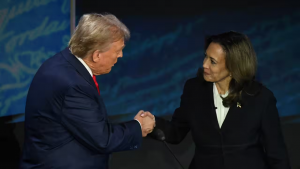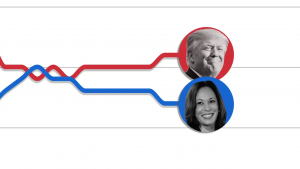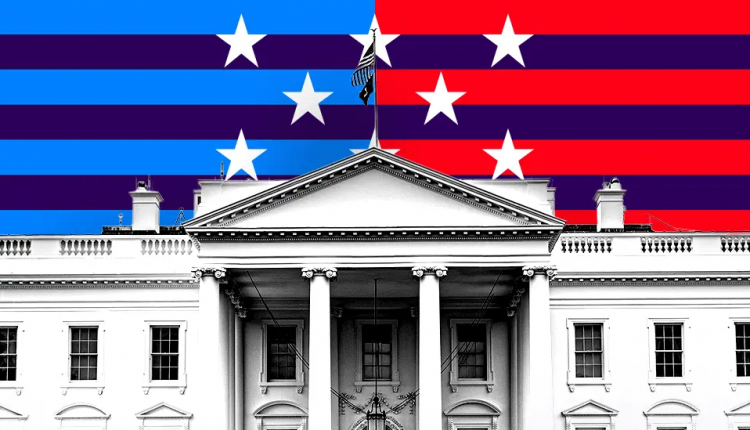The US Election 2024 and Its Ripple Effect on Pakistan
How the 2024 US Elections Shape Pakistan’s Future in Aid, Trade, and Security
As the 2024 US presidential election draws near, the political heat is on not just in the United States but also in countries that keep a close watch on American policies, Pakistan among them. With Democrats and Republicans vying for control, the stakes are high, and the outcome will have significant implications globally. But why should Pakistan care about this election? How do these political shifts impact Pakistani policies, economy, and international standing? Let’s explore.
Why Pakistan Watches US Elections Closely?
When it comes to foreign policy, the US plays a central role in international relations, economic assistance, and security. For decades, Pakistan has depended on US support in areas like military aid, counter-terrorism, and trade relations. Shifts in the US administration can bring about a major pivot in these policies, affecting Pakistan’s economy and its strategic plans.
For the 2024 U.S. presidential election, major candidates include Kamala Haris, and Donald Trump, the former Republican President, both representing familiar rivalries. Biden faces challenges from Dean Phillips, another Democrat, while Robert F. Kennedy Jr., initially a Democrat, now runs as an Independent. On the Republican side, contenders include Ron DeSantis, Governor of Florida; Nikki Haley, former U.N. Ambassador; and Vivek Ramaswamy, a biotech entrepreneur.

Each candidate’s foreign policy stance could impact Pakistan, particularly in areas like trade relations, defense, and regional stability. Biden’s administration has taken a cautious stance with Pakistan, balancing security interests in South Asia while maintaining ties with India. In contrast, Republicans like Trump and DeSantis have hinted at a stricter approach toward Pakistan’s military aid and counterterrorism strategies, which could shape future U.S.-Pakistan relations.
These dynamics are essential as Pakistan navigates its economic and political landscape, given the high stakes of U.S. policy shifts on Pakistan’s security and trade fronts. While both Democrats and Republicans have maintained Pakistan as a strategic ally, their approaches differ. Democrats tend to emphasize human rights, democracy, and climate change, while Republicans are often more focused on defense and economic partnerships. So the election’s outcome could shift US policies toward Pakistan, with the potential for different stances on aid, trade, and political support.
Democrats vs. Republicans: What’s at Stake for Pakistan
Economic and Military Aid
Pakistan has relied on economic and military assistance from the US, especially during challenging times. Traditionally, both parties have extended aid to Pakistan, though the emphasis and conditions have varied.
- Democrats: Historically, Democrats have been somewhat cautious about military assistance, sometimes tying aid to human rights and governance standards. They may push for more transparent governance in Pakistan, which can mean more scrutiny and accountability for financial aid.
- Republicans: Republicans, on the other hand, have often prioritized military cooperation, focusing on the region’s strategic stability. If a Republican leader wins, it may translate into greater military collaboration but potentially less emphasis on democratic reforms or human rights issues.
This distinction matters for Pakistan, which needs both security partnerships and economic assistance. Changes in administration will likely affect the terms and conditions of this aid, making Pakistan’s future security planning a bit of a guessing game.
The Impact on Trade Relations
In recent years, Pakistan has been trying to enhance trade ties with the US. The US is one of Pakistan’s largest export markets, especially for textiles. However, trade agreements are subject to political will and diplomatic relations.
A Republican administration might prioritize trade that benefits US industries more directly, possibly introducing tariffs or stricter trade policies. Democrats, in contrast, might pursue policies that support development-oriented trade but could also impose regulations aligned with labor and environmental standards.
Pakistan’s business community keeps a close eye on these policies, as shifts could directly affect exports, impacting sectors like textiles and IT services. Additionally, increased trade restrictions from the US can limit Pakistan’s export earnings, which would strain an already delicate economy.
Security Dynamics in a Changing World
Pakistan’s strategic location has always kept it at the center of US foreign policy in South Asia, especially due to the region’s complex security issues. The US continues to see Pakistan as a key player in dealing with extremism and stabilizing Afghanistan.
- Democrats: A Democratic leadership may press for Pakistan’s continued cooperation in counter-terrorism but will likely advocate for human rights and civilian oversight. They might be less willing to support aggressive military operations, which could challenge Pakistan’s security policies.
- Republicans: Republicans might prefer a more direct approach, pushing for Pakistan’s assistance in countering extremist threats without as many conditions on governance. This approach might align more with Pakistan’s traditional security goals but could potentially create tension over human rights concerns.
These differences affect Pakistan’s own security planning, as policies from either party can either strengthen or complicate Pakistan’s domestic and regional strategies.
Diplomatic Relations Human Rights and Democracy
US administrations often have distinct views on governance and human rights in their foreign policies. Under Democratic leadership, issues like freedom of the press, democratic reforms, and minority rights may become major talking points in the US-Pakistan dialogue. In contrast, Republican leaders may be more hands-off, focusing less on domestic policies and more on practical alliances.
This variation is significant. In Pakistan, where democratic institutions are still maturing, a US administration that pressures for reforms could have a substantial influence on governance. Alternatively, a Republican administration that avoids such pressures could make Pakistan’s political environment more flexible, though potentially at the cost of accountability and reform.
Climate Change and Environmental Policies
Climate change is an increasingly pressing issue worldwide, and Pakistan is particularly vulnerable. From melting glaciers to severe flooding, Pakistan has been on the front lines of climate challenges. A Democratic administration might pursue a more proactive climate policy, working with countries like Pakistan on renewable energy projects, carbon reduction goals, and environmental protection.
With Republicans, however, climate change may not be a policy priority, especially if they are focused on domestic energy production. While this might not directly harm Pakistan, it could mean fewer resources and initiatives directed toward combating climate issues that affect countries like Pakistan.
How Shifts in US Policy Could Influence Pakistan’s Economy?
The US dollar plays a central role in global finance, and the US economy’s health impacts markets everywhere. US elections influence the dollar’s stability and interest rates, which affect Pakistani currency, inflation, and international loans. A Republican administration, more inclined toward corporate-friendly tax policies, may encourage a strong dollar, making Pakistan’s debt management harder. Democrats, with a focus on social spending, might have a different economic outlook that could impact global economic policies.
If inflation rises in the US due to internal policies, it can lead to increased interest rates worldwide, impacting Pakistan’s borrowing costs. Economic policies enacted in the US thus have real effects on Pakistan’s economy, influencing everything from trade costs to debt repayment.

Immigration Policies and the Pakistani Diaspora
For the Pakistani diaspora, especially those seeking education, jobs, or permanent residence in the US, immigration policies are crucial. Democrats are typically more open to immigration reform, while Republicans may support stricter immigration policies. Changes here directly impact Pakistani professionals, students, and families living in the US.
A Democratic win could mean more relaxed immigration laws, allowing Pakistani professionals and students greater opportunities. A Republican win might introduce more stringent regulations, affecting visa policies and making it harder for Pakistanis to study or work in the US.
The Bigger Picture Where Pakistan Fits In
For Pakistan, the US election is more than just an American affair. It’s a global event with consequences for foreign policy, the economy, and the environment. Pakistan finds itself at a unique crossroads with the US, sharing strategic interests yet occasionally experiencing diplomatic friction. Whoever wins, Pakistan will need to navigate these new dynamics carefully. It will have to adapt to evolving US priorities, balancing its own interests with those of a superpower.
Can Pakistan Influence the US Elections?
While Pakistan cannot directly influence the US elections, it does have a stake in the policies each administration adopts. Pakistan’s diplomatic missions, think tanks, and diaspora play a role in shaping perceptions of Pakistan in the US, but they do not directly impact election results.
However, by maintaining robust diplomatic relations and engaging with US policymakers, Pakistan can still work to ensure its priorities are understood and taken into account. Over the years, Pakistani leaders have learned that open dialogue, collaboration, and proactive diplomacy are key to sustaining a beneficial relationship with the US, regardless of which party is in power.
What Lies Ahead for Pakistan?
Regardless of the election outcome, Pakistan will need to adapt and prepare for new diplomatic, economic, and security challenges. US elections may seem distant to everyday Pakistanis, but their effects on aid, trade, security, and the economy can be felt across society.
Pakistan’s next steps will require a balanced approach that respects US concerns while advancing Pakistan’s own interests. Whether dealing with Democrats focused on human rights or Republicans prioritizing security, Pakistan must work toward stability, resilience, and growth. The road ahead will be shaped by strategic thinking, strong leadership, and a careful understanding of the US-Pakistan relationship.
As the US gears up for a new administration, Pakistan must prepare for what lies on the horizon. It’s a reminder that even from thousands of miles away, elections in Washington can shape futures in Islamabad.

